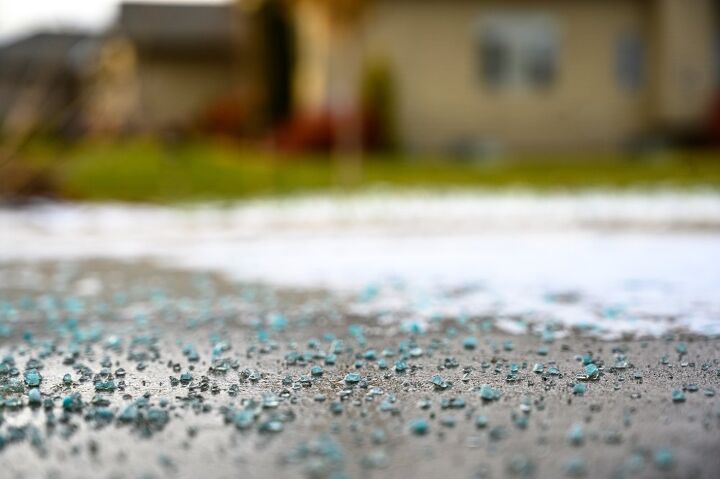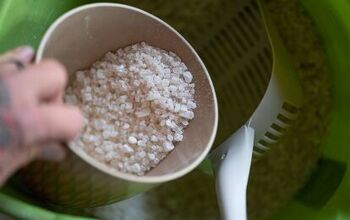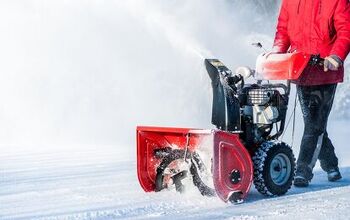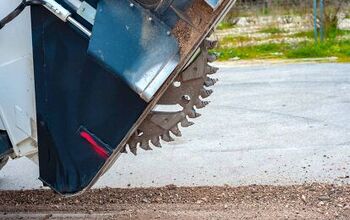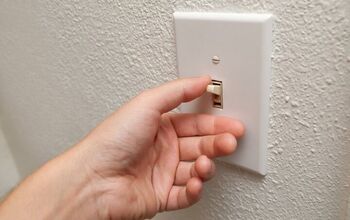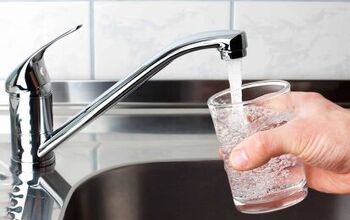Can You Use Pool Salt On A Driveway? (Find Out Now!)

If you own a pool, then you’re already dreading winter because you have to prep your pool for closure. But, there might be a mild silver lining to the darkening weather. You might be able to use pool salt in a driveway to help melt ice as it snows. Of course, finding out if it’s actually a good idea matters, too.
Pool salt can be effectively used as an ice melter as long as the temperature is above 20 degrees Fahrenheit. Below 20 degrees, pool salt will not be as effective as ice melter. Moreover, pool salt can become corrosive over the span of long-term usage.
When you’re in a bind, it’s always good to have a little pool salt in your garage. However, there’s a lot to take in here. It’s time to talk about what pool salt can and can’t do.
Do You Need Snow Removal Services?
Get free, zero-commitment quotes from pro contractors near you.

Is It A Good Idea To Use Pool Salt To Melt Ice In Your Driveway?
In most cases, using pool salt will melt your ice effectively and safely. So the answer here is yes—with a catch. While you can use pool salt, the truth is that it’s not the most effective ice melter out there. If you are in a bind, then you might be able to use it with decent results.
How Effective Is Pool Salt For Your Driveway?
Pool salt is surprisingly effective, which is why it’s still fairly common to use it as an ice melter. In most cases, pool salt rivals table salt when it comes to its efficacy for driveway usage. The best time to use pool salt is when the environment around you is 20 degrees Fahrenheit or warmer.
Though 20 degrees is the threshold, pool salt still retains a fair amount of its efficacy after temperatures dip lower. It’s just that you may need to have more friction to get the salt melting your ice.
Is Pool Salt Environmentally-Friendly?
Yes and no. Pool salt is definitely more environmentally-friendly than many chemical options on the market, so there’s that. However, salt can still be corrosive in large quantities. This can lead to staining and even cracking on concrete paving. Moreover, it also can pose a risk to lawns and sensitive plant life.
If you want to be good to the environment, it’s best to seek out salts for pet-friendly purposes. Most pet-friendly melters will be gentle enough for both paws, lawns, and other environmental facets. Salts, on the other hand, can be pretty coarse.
What Other Materials Can You Use For Driveway Ice Melting?
So, the most obvious alternative to pool salt is de-icer, which is literally a salt-based chemical that is meant to melt away ice. However, there are other effective and environmentally-friendly options that you can use. These include the following:
- Vinegar. It’s true. A spray bottle of vinegar will eat through ice pretty quickly. However, this is best used in situations where you don’t have much ice. Vinegar works, but it only works so much. You know what I mean?
- Kitty Litter/Sand+Salt. This is best if used in a pinch, but it offers a ton of traction and can also help eat through particularly slippery patches of ice.
- Table Salt. Yep, there’s a reason why the Morton’s Salt Girl always is pouring salt as she’s walking. It’s the traditional choice for melting snow and ice.
- Ice Melt. I’ll say it again. Professionally-formulated ice melts are great and tend to be made with driveway safety in mind. It’s what they are literally designed to do, so it’s a smart choice for making sure that you get the melting action that you need.
- Coffee Grounds. While it’s not the most effective, coffee grounds are great at offering a little bit of melting power with a lot more traction. Since it is super safe for lawns and delicate flower beds, it’s also a popular choice among botanists.
- Urea/Carbonyl Diamide. This green-tinted ice melt is one of the more popular choices for people who want to have lawn-safe ice melter. It also happens to be one of the more pet-safe options on this list. So, if you have a pup, get this.
Related Guide: Can You Use Water Softener Salt On Your Driveway?
What Are The Safest Ice Melts/Salts For A Concrete Driveway?
While ice melt salts are popular, they aren’t always the smartest ones. This is particularly true with concrete driveways, since they’re prone to corrosion. If you want to make sure that your driveway is going to stay in peak condition, stick to calcium chloride OR magnesium chloride salts.
Other types of salts, including common ones like rock salt and potassium chloride, can corrode concrete and dry out asphalt. You don’t want to do that.
Do You Need Snow Removal Services?
Get free, zero-commitment quotes from pro contractors near you.

Related Questions
Is ice melt directly related to concrete driveway damage?
Concrete driveways don’t actually get damaged from ice melts. Ice melts tend to encourage a freeze/thaw cycle. As water refreezes, it can start to chip away at the concrete driveway. The more water expands in the pores, the more the tiny holes in concrete will endure stress. As the structure gets stressed, the driveway will start to wear away. It’s not a good look.
What liquid melts ice the fastest?
While it may be counterintuitive, using boiling water to melt away ice is actually the fastest way to get rid of the ice. In most cases, the boiling water won’t be able to stay cold and will not refreeze. However, this is a method that is best left to driveways and topped with some salt and sand.Using boiling water on a car window (or any window, really) runs the risk of causing the window to crack. If you need to melt ice off a window, using a scraper followed by some window defrosting is the best way to do it.
Does ice melt faster on metal or plastic?
Due to the high conductivity of metal, ice actually melts on metal faster than it would on plastic. So, if you have to melt ice, try to put it on hot metal. It’s the easiest way to disperse the energy that helps melt the ice.

Ossiana Tepfenhart is an expert writer, focusing on interior design and general home tips. Writing is her life, and it's what she does best. Her interests include art and real estate investments.
More by Ossiana Tepfenhart



